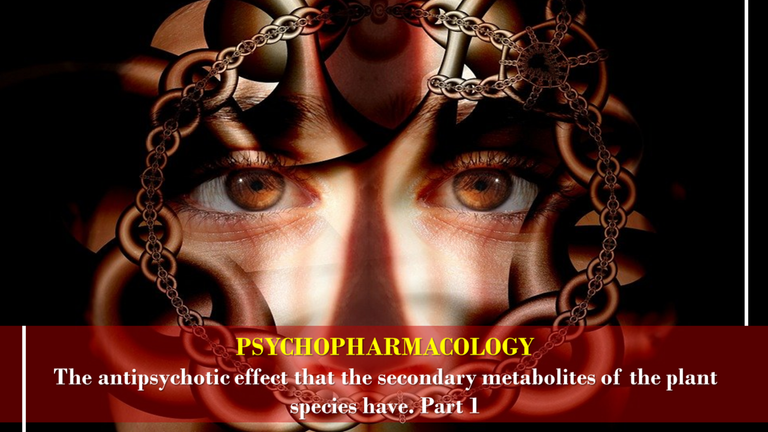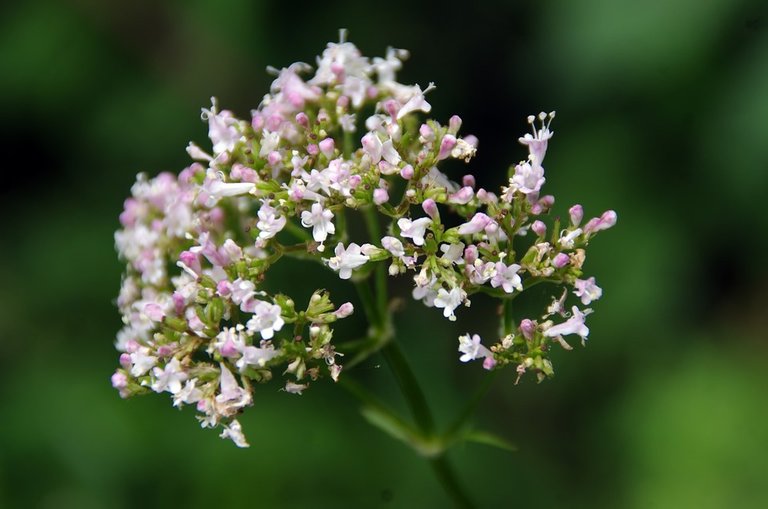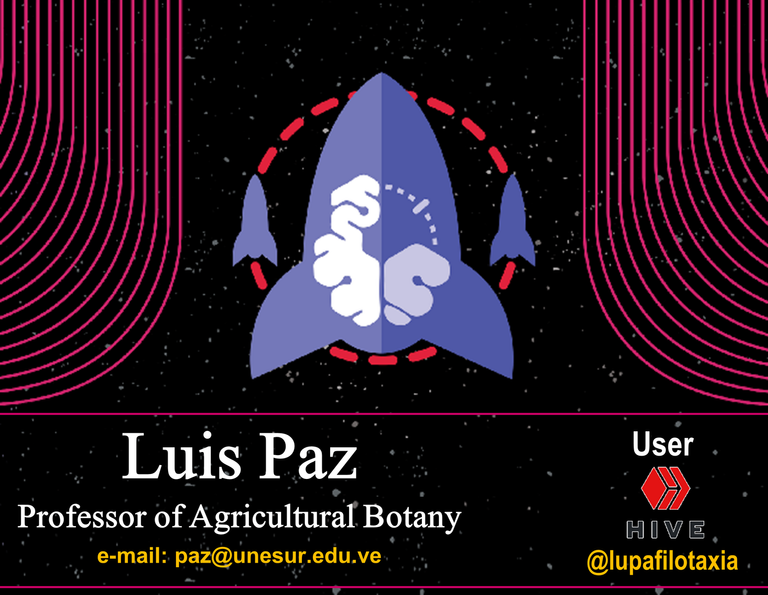PSYCHOPHARMACOLOGY // The antipsychotic effect that the secondary metabolites of the plant species have. Part 1
(Edited)

In order to continue presenting fresh and at the same time utilitarian information, based on the enormous potential that plants have in Psychopharmacology, I wanted to outline a new thematic approach and share it with all the users of the #Hive platform, especially with the friends of @Project.HOPE, this issue deals with the ANTIPSYCHOTIC effect that the secondary metabolites of plant species have, on patients suffering from Schizophrenia.
It is important to begin by indicating that, although specific clinical orientations coexist between synthetic pharmacology and phytopharmacology, in the case of psychology the content related to the drugs that are usually applied to treat multiple mental health problems, the information accessible to the general public is very limited. Therefore, with this publication I intend to make available to users of the #Hive platform the characterizations related to psychological profile treatments through the use of phytopharmaceuticals of recognized scientific value.
In this publication, it only presents scientific information related to one of the secondary metabolites, which may well be used in patients suffering from the psychopathology identified as Schizophrenia, in this sense, those who have a neighbor, friend, or family member suffering from this serious mental illness, whose manifestation is characterized by a significant loss of contact with reality, that in medical terms is known as psychosis, it is known that this disease manifests itself through a set of absurd behaviors, where the person who suffers it externalizes disturbances of perception and thought, both elements affect the form or style of relating to others, by exhibiting delusional qualities through misconceptions and a language of communication totally disorganized.

Fig. 2 A somewhat disoriented look and changes in the retina of the eyes are some of the symptoms suffered by people with schizophrenia. Image of public domain, Author: Geralt, 2014
Before continuing, it is very important to point out that, in spite of all the scientific advances of the last two decades, in these years of modernity in the medical field, the neuronal physiological disorders related to the appearance of schizophrenia are still unknown. However, it is assumed that this abnormal behavior is the product of a combination of genetic and environmental factors, Therefore, in an interpretative way, it is believed that certain adverse environments end up making chemical and structural alterations at the brain level, mainly by generating imbalances or deficits of the neurotransmitter identified as GABA (γ-aminobutyric acid). Therefore, drugs with antipsychotic action (drugs that generate a sensation of calm in patients with psychosis) are used .
With regard to plant-oriented Psychopharmacology, the species that is usually used for its antipsychotic action is Valeriana officinalis commonly known as Valerian, in general terms Valerian specimens have secondary metabolites with high concentrations of GABA (γ-aminobutyric acid), which favors its application as an alternative treatment and an effective phytodrug that can compensate the deficits of GABA, by inhibiting excessive discharges at the neuronal level, and thus generate in people with schizophrenia a feeling of serenity, which is essentially the effect achieved by synthetic drugs.

Fig. 3 Reproductive apparatus, or inflorescence of Valeriana officinalis. Image of public domain, Author: Dezalb, 2016
If you have reached this paragraph, it is because you somehow found utilitarian approaches in the manuscript, so I invite you to read the following issues in order to access more descriptions on plant psychopharmacology.
BIBLIOGRAPHICAL REFERENCES CONSULTED:
[1] Zahra K. Effect of use of Valeriana officinalis On psychological symptoms and sleep disorders in patient with chronic schizophrenia admitted in Sina hospital Jouneghan. Shahrekord University Of Medical Sciences. 2018. Article: Online access
[2] Keck M., Nicolussi S., Spura k., Blohm C., Zahner C., and Dreweand J. Effect of the fixed combination of valerian, lemon balm, passionflower, and butterbur extracts (Ze 185) on the prescription pattern of benzodiazepines in hospitalized psychiatric patients—A retrospective case‐control investigation. Phytotherapy Research. 2020; 34: 1436–1445. Article: Online access
[3] Nikolić G., Stojanovića N., Randjelović P., Manojlović S., Radulović N. An epidemiological study on herbal product self-medication practice among psychotic outpatients from Serbia: A cross-sectional study. Saudi Pharmaceutical Journal. 2018; 26; 3: 335-341. Article: Online access
[4] Oscar Medina O., Sánchez N., Fraguas D., and Arango C. Use of Valerian in the Long-Term Treatment of Insomnia. Revista Colombiana de Psiquiatria. 2008; 37; 4: 614-626. Article: Online access
OBSERVATION


0
0
0.000
https://twitter.com/lupafilotaxia/status/1315140453155647489
#Posh Twitter:
https://twitter.com/lupafilotaxia/status/1315140453155647489
@tipu curate
Upvoted 👌 (Mana: 18/27) Liquid rewards.
I appreciate the support provided. Best regards.
Hello @lupafilotaxia
It is rare to see publications on medicine or related subjects in Project Hope, and obviously not everyone masters certain terminology that would allow them to understand some things that could be mentioned.
It is always good to clarify that the fact that you mention some characteristic symptoms of the pathology is a matter, (schizophrenia in this case), the diagnosis will only be carried out by medical personnel, and I tell you with complete certainty and knowledge of the cause, it can take up to two years to achieve an accurate psychiatric diagnosis.
The other thing you mention, is secondary metabolites, it would be good to clarify that these are the result of processing by the organism once it is processing it in the digestive tract with the action of substances that are produced in the liver, pancreas, stomach, etc.
I wanted to limit that, but, the general lines are very good the information you bring us to share. And it's true, the information regarding plants as medicines is always very limited. Because it's not convenient for pharmaceutical companies, obviously.
Greetings @josevas217.
That's right, I even mentioned in another opportunity, that when I received the invitation to upload content for the @Project.HOPE tag, after reading the general guidelines of the community, I realized that I could only share content related to the area of Psychology, since it is a likely area where you can share information related to plants and psychology.
In general terms, the articles are oriented to maintain thematic lines on rehabilitation and psychopharmacology, taking as a starting point the potentiality provided by substances or secondary metabolites exhibited by some plant species, an element used in mental health treatments.
My area of training is Botany, so I do not usually publish on other areas, nor on medicine, nor medical diagnoses, nor psychiatric characterizations, since I do not wish to touch on topics that are not in my professional domain, hence, in my blog I only address the potential that plants can provide us with to treat certain diseases, through the use of the secondary metabolites that are synthesized in certain plant organs.
Thank you for leaving your kind and constructive appreciation.
Interesting contribution.
It is good to have contact with people who can complement what one could handle on this particular subject.
I must confess that I don't know much about it, I only know the benefit of some plants because my grandfather and grandmother used these to relieve some discomfort when I was a child.
But, it is very good to know about it.
I'm really a doctor and a nurse, so the previous comment, a little to clarify the issue to those who might come to review your post.
There is a community called natural medicine, and it has a very good participation of the users, it could also be useful for you.
Of course, you can continue publishing in PH your quality posts, thanks for sharing your knowledge @lupafilotaxia
From all of us we learn, that's the good thing about getting quality publications like this.
Greetings friend @lupafilotaxia, as always your publications let me discover something new about the therapeutic use of plants, I had already heard the usefulness of valerian as a relaxing agent, to relieve anxiety disorders, it is interesting to read that also has antipsychotic action, apparently has many beneficial effects on the neurological system.
The most indicated recommendation, of the Valerine is in fact the relaxing one, generally people use it to be able to sleep, when they have problems of labor stress. Basically this antipsychotic response is effective because of its positive action to induce a sense of calm. Greetings dear friend @emiliomoron, blessings to you and yours.